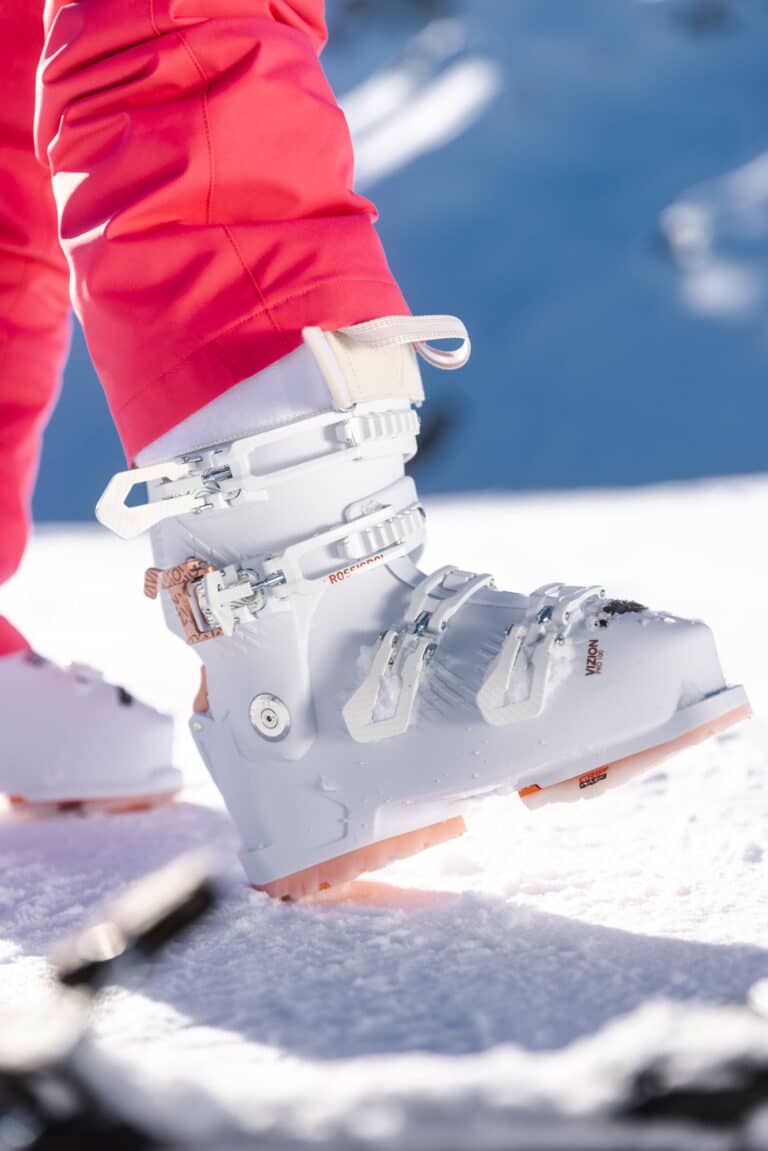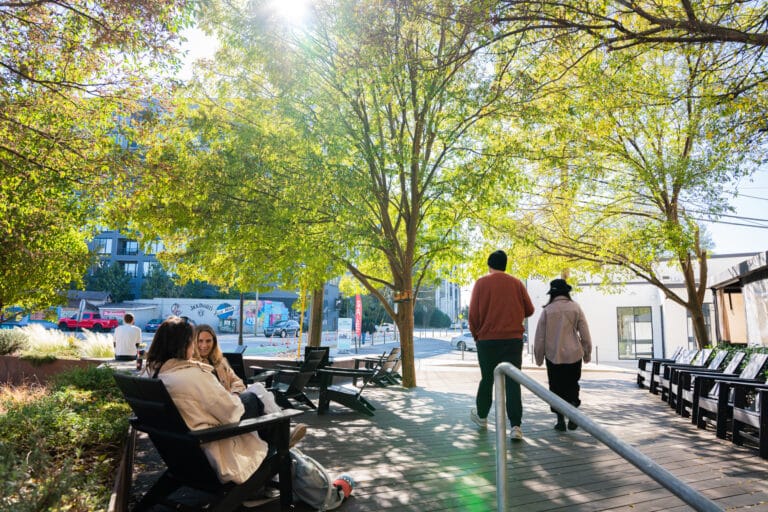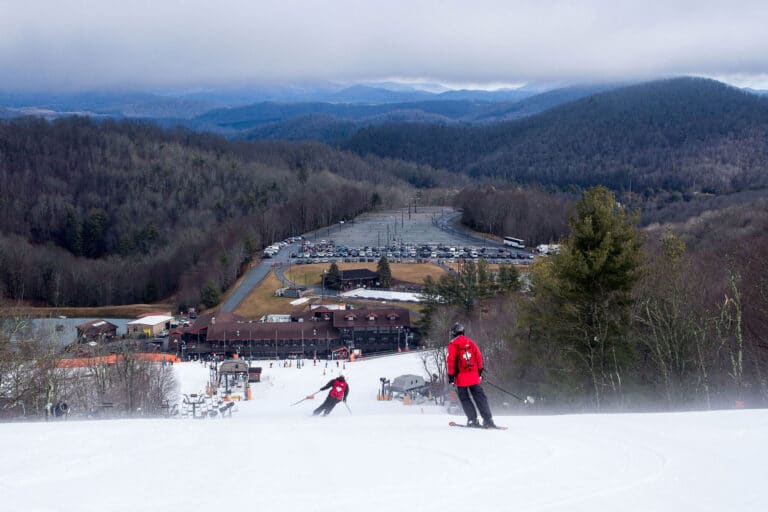If you want to see courage, inspiration, and excellence face-to-face, you’ve got to meet the resilient, respected athletes with Paralyzed Veterans of America.
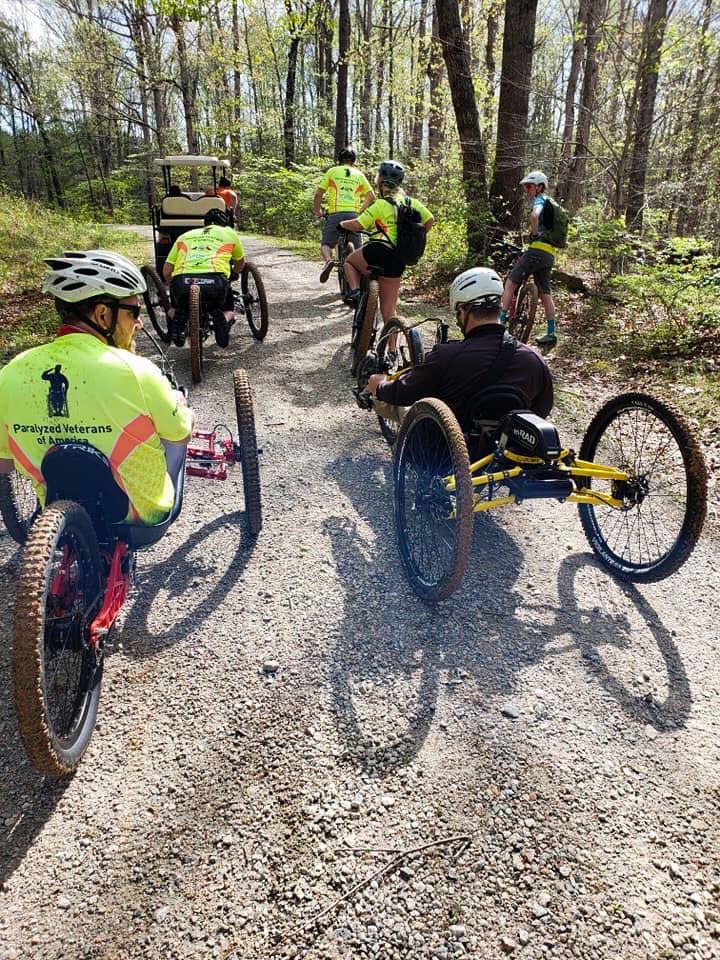
Good vibes and positively-stoked energy filled the beautifully wooded trails of Pocahontas State Park in Chesterfield, Virginia, at a recent off-road handcycling event organized by the PVA Mid-Atlantic Chapter, that truly exemplifies the incredible spirit of this exceptional group
“For me personally, it’s an opportunity to feel a part of the community that I once enjoyed without disability, so this park makes it easy for us to be integrated back into the community doing the things that we love, to keep our health, our sanity, to be part of nature, and enjoy this aspect of our lives,” shared veteran Ken Holman, of Chester, Virginia, about the indescribable bliss of participating in the adaptive trail cycling.
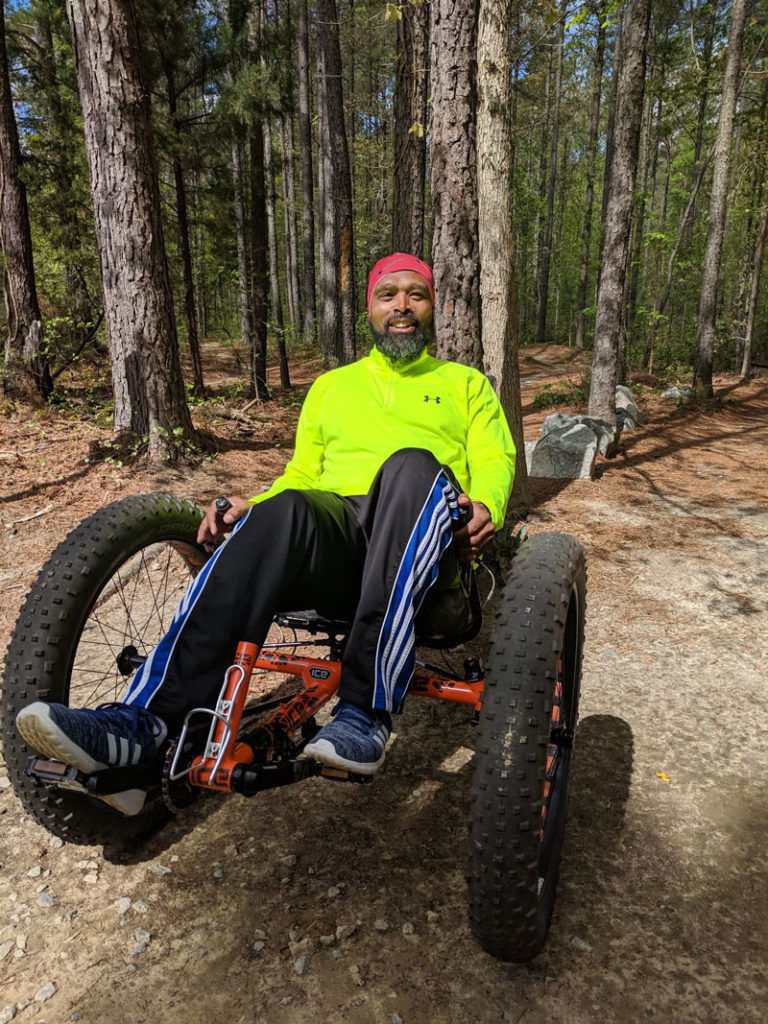
Engaging in the forest is salve for the soul, Holman added, “It’s a calming, you know, for those of us that are veterans that suffer from PTSD. It’s a time to reflect, relax, and not worry about the things you can no longer do, but focus on things you can do.”
Adaptive Sports Program Manager John Arbino says events like this are crucial for veterans who’ve been injured. “It gets them back outside again and gets them back in nature and gets them out being part of the community again. We have a lot of people that are able-bodied that are volunteering to support this event. This event is so great to get us back interacting.”
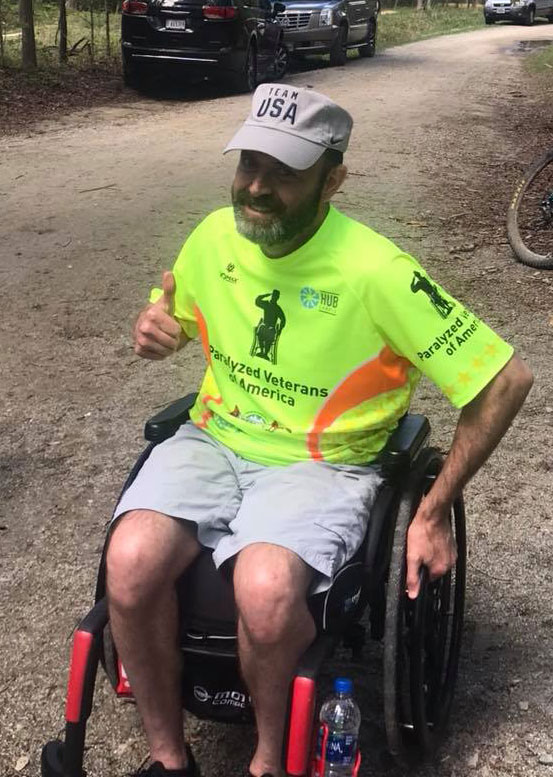
The adaptive cycles bring new life to the veterans, so they can once again enjoy what they love doing. “A lot of people look down to us in wheelchairs because they think we’re disabled,” said Arbino. “They pity us because they think we can’t take care of ourselves. But when they see us out there on the mountain bike trails… then they realize, “wow”, they’re not disabled, they just passed me on the mountain bike trail!”
That freedom to explore means a lot to these athletes, says Director of Racing and Fitness Jody Shiflett. “You can go where it’s quiet and solemn and run across some wildlife, and just hearing the wind go through the leaves, the brooks, the creeks, it can be meditative, or it could soothe, maybe you have a sense of adventure you’re trying to find.”
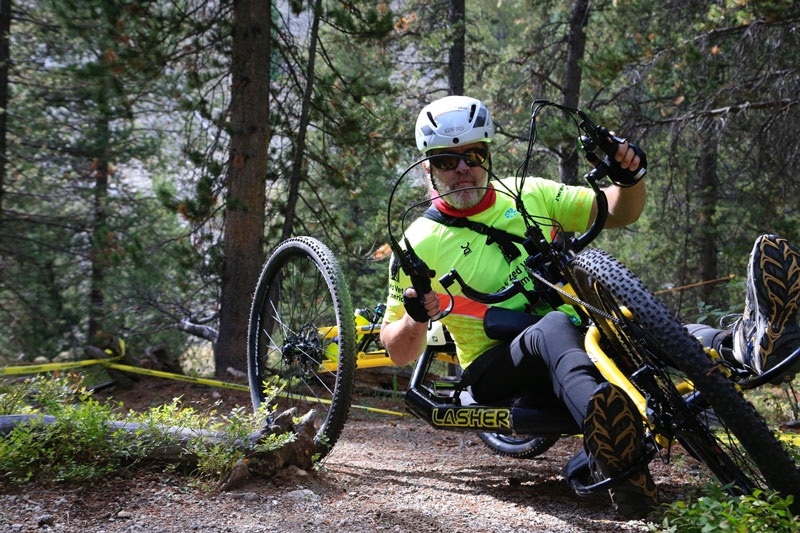
Shiflett especially thanks Pocahontas State Park for leading the way in accommodating those with disabilities. “The park rangers here are very supportive to our being included. There’s not a lot of off-road opportunities on the East Coast, especially and particularly for people with disabilities, so we’ve been taking advantage of this infrastructure here. So I want to just praise them for…allowing us to have access to this and being supportive, because they have to maintain these trails, and since these certain trails are being maintained to a wider width, well guess what, that probably increased their cost two-fold. They could spend less money and make it narrow, but they’re very accommodating.”
Holman agrees, “This park has given to our community a part of our lives that was kind of taken away from us, so this park has accommodated us, not only in the trails, but the facilities (the port-o-john), the tent, changing the gravel so the chairs and bikes can maneuver, so we can have opportunities for fellowship with each other.”
Pocahontas State Park is well-known for its dedicated group of volunteers, including RVA MORE and Friends of Pocahontas State Park, who give of their time to maintain the trail system at the park and support of the veterans.
Events like this are much appreciated says Holman. “It’s an opportunity for us get together and have fun. We don’t have to worry about the other people who are not accustomed to our bikes and our way of lives. We all have similar problems, and similar injuries so we can relate to each other.”
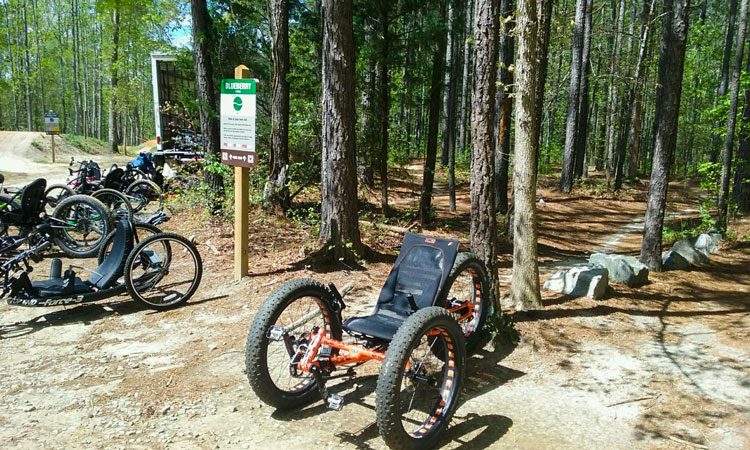
Erin Green, Executive Director of the Mid-Atlantic Chapter Paralyzed Veterans of America hopes what is happening here at Pocahontas State Park, leads to positive change nationwide.“It’s significant because our trails are starting to become more adaptable to individuals with disabilities, and inclusive, and that’s an important part. I think all state parks should look into becoming more adaptable, so our members of the community with disabilities, not just veterans, but civilians as well, can use and get out in nature and utilize the state parks we have in Virginia and the U.S.”

